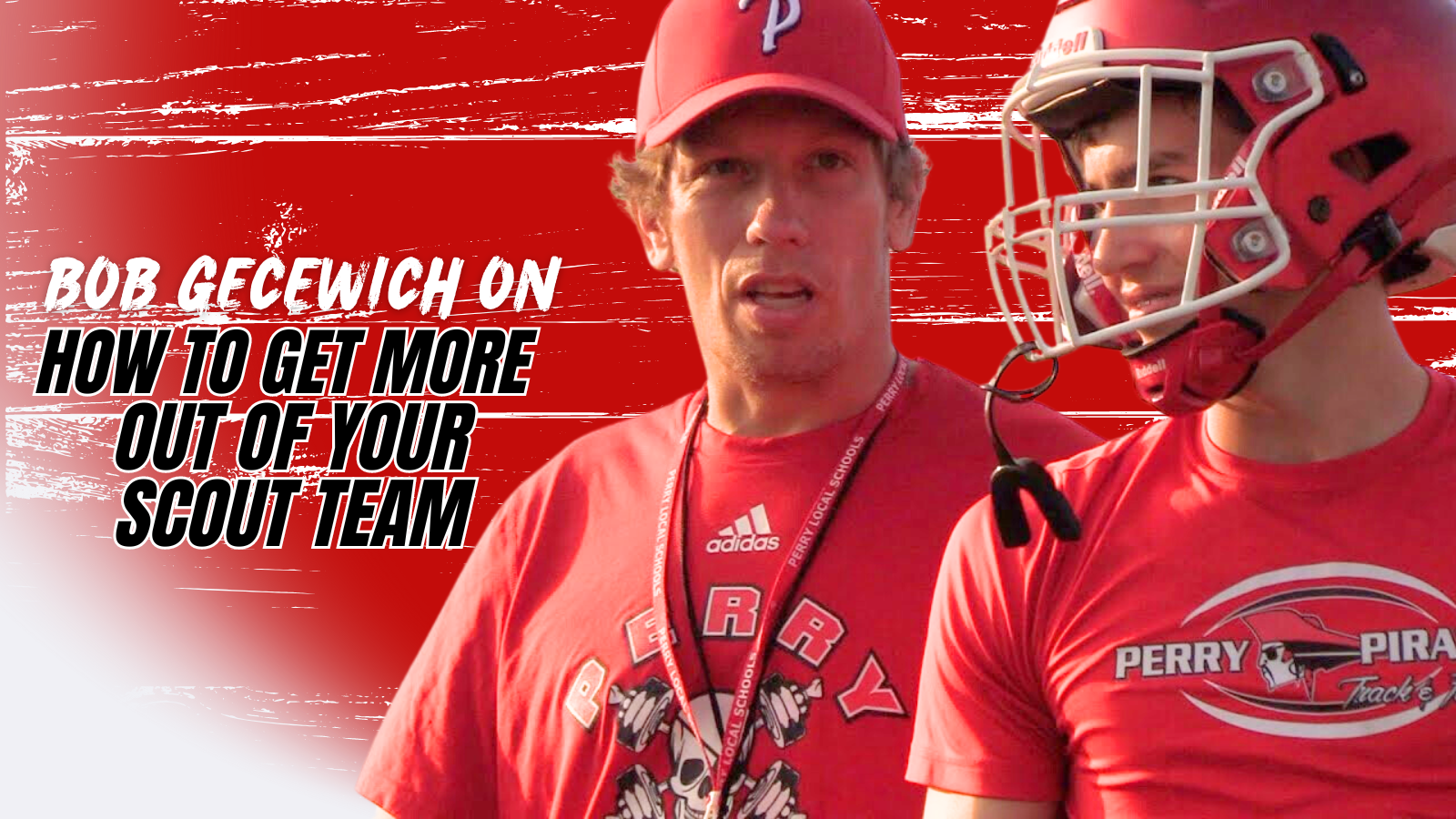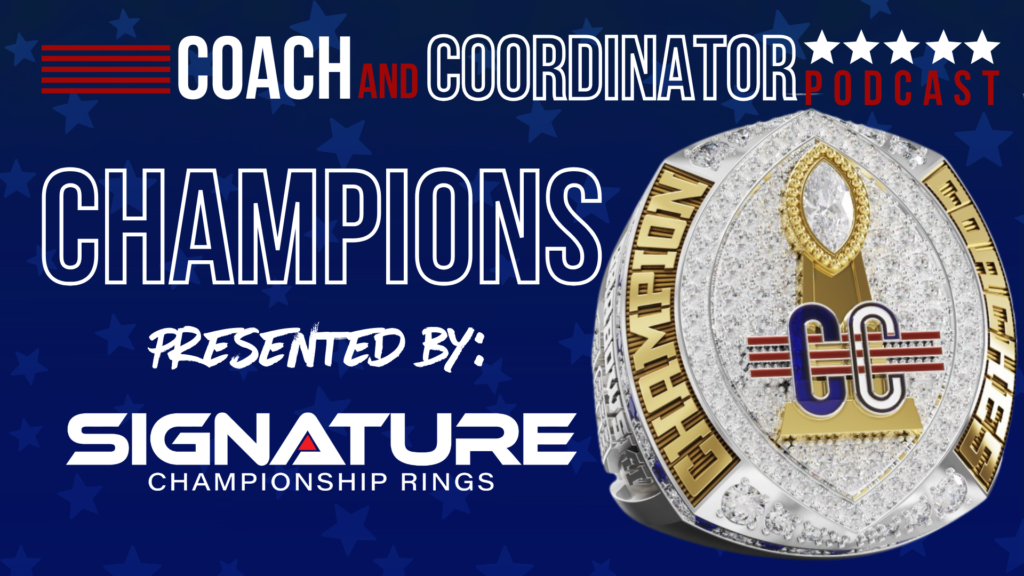
Scout teams are often the unsung heroes of a successful football program. They help prepare the first-string players for the real action on game day, simulating the opposition’s tactics and testing your starters. But let’s face it – scout teams are tough to manage. Players on these teams don’t see a lot of playing time, which can sap their motivation. So, how can you get more out of your scout teams while keeping them motivated and engaged?
As Bob Gecewich, head coach of Perry High School, the 2024 Ohio Division IV State Champion, shared in a recent episode of Champions, “Football is not fun Monday through Thursday… and it’s especially not fun if you’re the scout player.” Yet, Gecewich offers some valuable insights on how to make the most out of these often overlooked teams.
Coaching and Developing Scout Teams
One of the biggest mistakes coaches make is treating their scout teams as second-tier. Instead, you should coach them like they’re your first string. Coach Gecewich explains that at Perry High School, they coach their scout teams just like their varsity team. “We put as much of it in our verbiage as possible… so that our guys can run our defensive scheme with some confidence,” he says.
This means focusing on development. Whether it’s freshman players or juniors who aren’t getting a lot of playing time, the goal should be to help them grow as players. “Our varsity coaches coach freshmen and JV just as hard as they coach the varsity,” Gecewich notes. By doing this, you ensure that every player is receiving quality coaching, which can pay off in the long run.
Techniques for Maximizing Scout Team Performance
Maximizing performance on scout teams requires a bit of creativity. One effective strategy Gecewich uses is manipulating plays to suit the development of his players. Instead of giving a perfect replication of the opposing team’s scheme, you can tweak it slightly so that it aligns more closely with your own team’s terminology and style. This allows your scout team to build confidence in your own plays while still serving the purpose of preparing the starters.
Additionally, celebrating small wins is key to keeping morale high. Running a scout team can be tough, especially when younger or less experienced players are facing off against seasoned starters. “If you’re getting two yards on a run, we act as if they just ripped off a 20-yarder,” says Gecewich. Positive reinforcement makes a huge difference, giving the scout players a sense of accomplishment and motivation to continue working hard.
Long-Term Development and Retention
Retention and development are important when it comes to scout teams. It’s easy for players to feel discouraged when they’re not seeing the field on Friday nights. That’s why it’s essential to keep them engaged by showing them that their hard work will pay off.
Gecewich emphasizes the importance of giving scout team players a chance to shine, not just in practice, but on game day too. “If we see someone that shines on scout team, we give them a shot on Friday,” he explains. This could mean a few plays on special teams or rotating into the lineup during less critical moments. Not only does this reward effort, but it also shows the team that hard work and perseverance will be noticed.
Developing players at all levels – from freshmen to juniors – ensures that your team is always building for the future. A strong JV or freshman squad translates into a strong varsity team down the line. According to Gecewich, championships at the JV and freshman levels only matter if they lead to varsity success. The focus should always be on long-term player development rather than short-term wins.
Manipulating the Scout Team for a Better Look
One of the biggest challenges with scout teams is getting them to simulate opposing offenses accurately enough to prepare your first-string players. Let’s face it, if your scout team had the same talent and execution as the opposition, they wouldn’t be on the scout team, right? So how can you give your starters the look they need without setting unrealistic expectations?
Coach Bob Gecewich shared a clever strategy when it comes to manipulating scout teams for better results. One of the most effective ways to do this is by adjusting how your scout team runs plays like the stretch or outside zone play. In this case, instead of letting the defense easily defeat the scout team, you instruct them to cheat the play. Coach and Coordinator host Keith Grabowski noted, “We literally tell them, ‘You’re running this way, we’re running stretch this way, don’t get reached.”
By forcing your scout team to cheat to one side, you make the offensive line work harder to block and execute their techniques properly. This manipulation gives the first-string offense a more challenging and realistic look, forcing them to adapt and improve their blocking angles, footwork, and timing under pressure.
The same principle applies to running plays that require specific defensive responses. If you want your starters to improve, sometimes you need to simulate tougher conditions that they will face in games by setting up your scout team to cheat in the direction that will challenge the offense the most. As Coach Gecewich points out, this method prevents the offense from having too easy a time, which can lead to false confidence on game day.

Learn More about Signature Championship Rings: Signature Championship Rings is a leading designer and supplier of championship rings, serving over 10,000 teams and organizations. With a focus on quality craftsmanship, easy team ordering processes, and affordability, Signature Champions celebrate every champion and their achievements, making their moment last a lifetime. For more information, visit www.signaturechampions.com/podcast.
Simulating Tough Offenses Like the Triple Option
One of the most difficult offenses to simulate with a scout team is the triple option. For teams not used to defending this kind of system, it can be a real nightmare. The option’s precision, decision-making, and various looks make it tough to prepare for. Gecewich shares how his team prepares for these tricky offenses by splitting the scout team into two groups based on ability.
With offenses like the triple option, you often don’t have scout players who can truly replicate the skill or speed of an option quarterback or fullback. To tackle this, Gecewich recommends running two scout teams. The first is the best group you have, capable of running the play as well as possible. “They’re hopefully not going to beat our varsity guys… but they can compete,” says Gecewich. These players can give your starters the most realistic look possible.
The second group consists of younger or less experienced players who simply simulate the motions of the offense without fully running the plays. This group is there for mental reps, giving your defense a chance to step into the right positions and go through their reads. “They get lined up, they run through the motion, snap the ball, and our defense steps to where they’re going,” explains Gecewich. This allows the defense to get the mental preparation it needs without overloading the less experienced players.
Using this two-pronged approach helps prepare your team for even the most difficult offenses, while keeping scout players engaged and giving them a role in practice.
An Important Part of Every Game
Coach Gecewich recalled a specific game where the scout team played a key role in preparing for a challenging offense. After a win over Garrettsville Garfield, Gecewich made sure to give the scout team the credit they deserved. “The first people we talked about in the newspaper were our scout offense because it was such a unique offense to get ready for, and we called those guys out by name,” he proudly shared. This kind of recognition not only motivates the scout players but also demonstrates their vital contribution to the team’s overall success.
Getting more out of your scout teams is all about how you approach their development. By treating them like an integral part of your program, rather than just a group that fills out practices, you’ll see better results both in practice and on game day. As Coach Gecewich highlights, celebrating small wins, giving players meaningful reps, and showing them the path to future playing time can make a significant difference in their motivation and performance.
So, the next time you’re working with your scout team, think about how you can tweak your approach to give them the best possible chance to succeed – because when your scout team improves, your entire program benefits.


